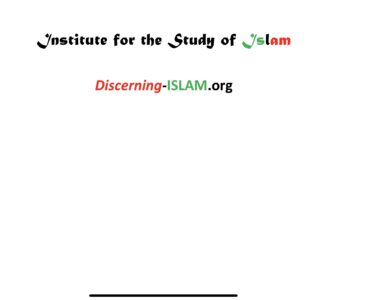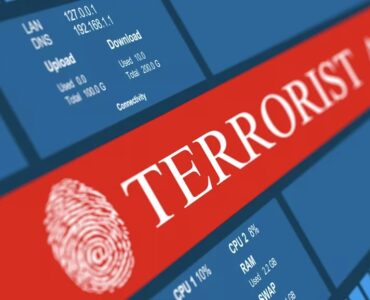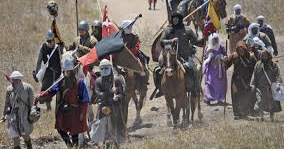
Fethullah Gülen

BORN
Name: Muhammed Fethullah Gülenu
DOB: 27 April 1941 (age 77 in 2019)
Place: Pasinler, Erzurum, Turkey
Residence: Near Saylorsburg, Pennsylvania, United States
Nationality: Turkish Citizenship – Stateless (from 2017)
Occupation: Scholar, author, preacher
Known for: Gülen movement
Writing career, Subject: Moderate Islam, Turkish politics, Anti-communism
Notable awards: 2015 Gandhi King Ikeda Award for Peace
School: Hanafi
Main interests: Islamic thought, Sufism
Influences: Rumi, Yunus Emre, Ibn Arabi, Al-Ghazali, Said Nursî
Website: fgulen.com
Fethullah Gülen (b. 1941), the founder of Turkeyʾs largest faith-oriented Islamic movement, is one of the countryʾs most important Muslim thinkers and a prolific writer. His followers collectively constitute the Gülen movement, a branch of one of the strongest Islamic movements in Turkey, the Nurcus, founded by Said Nursî (1876–1960) in the early years of the Turkish Republic.
Gülen is from the eastern Anatolian province of Erzurum. His first impressions of Islam were influenced by Ṣūfī-oriented movements such as the Naqshabandīs. He attended a traditional madrasah, later educated himself and graduated high school by passing outside exams; he served as an official preacher of the Turkish governmentʾs Directorate of Religious Affairs (Diyanet), for approximately thirty years; and devoted himself to writing, especially after he retired. He is deeply involved in interfaith dialogue and met with Pope John Paul II at the Vatican and with other prominent religious leaders from around the world. Although Gülen and movement members try to give the impression that they are not political and do not want to influence the political process, in practice they are extremely political and participate in the political process.
In the late 1960s, Gülen was appointed as a preacher of Kestanepazari Mosque in İzmir, and soon became a formidable force — through his sermons and youth-focused summer camps and activities. Because of his religious and social activities, Gülen was arrested and imprisoned for seven monthss in 1971 for organizing Islamic summer camps, an event that increased his reputation as a religious leader. Starting in İzmir, Gülen organized an influential Islamic movement that emphasized education, inter-religious dialogue, nationalism, and free-market capitalism. Movements associated with Gülen now run hundreds of schools, a handful of universities, and numerous foundations around the world. Nevertheless, from a small nucleus in İzmir, Gülen created the most influential, well-organized Islamic movement in Turkey.
Although Gülen often writes and preaches on spiritual, ethical, and political topics, his jurisprudence is more difficult to discern. His writing indicates a tension between a deep commitment to the Islamic textual tradition and an impulse to validate modern technological, economic, and political innovations. Although he occasionally acknowledges the importance of classical fiqh, he argues that changed circumstances, such as the end of the caliphate, the rise of the nation-state, and fundamental economic transformation, require new legal rules. He does not explicitly reject taqlīd, here an adherence to traditional Islamic law, as a methodology, so he cannot be understood as opening up a totally new era of legal interpretation (ijtihād). However, in the absence of a robust system of Islamic education in the classical schools of law, his approach could be interpreted as justifying new methodologies for deriving authentic Islamic legal rules. Ihsan Yilmaz observes that “by exercising ijtihad without flagging it as ijtihad, Gülen reinterprets Islamic understanding in tune with contemporary times” (Yilmaz, 2005, p. 200).
Gülen’s discreet use of ijtihād (whether in a mode of taqlīd or in a purely modernist mode) generally reflects a pragmatic approach to jurisprudence. Structurally, he legitimizes the idea of the secular state and democratic decision-making. In the absence of a unified Muslim community and historically legitimate legal institutions, Gülen understands secularism as a product of and a requirement within an authentic understanding of Islam. For Gülen, as for many Islamic modernists, democracy is suitable as a pragmatic and just form of governance that is compatible with the Islamic principles of ijmāʿ (consensus) and shūrā (consultation).
Substantively, Gülen’s jurisprudence has profound implications in four areas:
1) It necessitates strong protections for the free exercise of religion within the context of a secular (and probably a pluralist) state. This position is clearly influenced by his negative experiences with Turkish limitations on free exercise. Even so, he is careful to limit criticisms of Turkish secularism so as not to impugn Turkish republicanism or nationalism;
2) The second major substantive innovation is Gülen’s understanding of citizenship and rights for all, regardless of religion, a view that diverges from classical fiqh. This position relates to the third area;
3) Gülen argues that human rights is an authentically Islamic discourse, without the reservations typically attributed to classical jurisprudenceg;
4) In particular, he expresses concern for the rights and agency of women, which is the fourth area of substantive innovation within Gülen’s jurisprudence. Although he might argue that women have some defined roles within Islam, he is a zealous advocate of formal legal equality regardless of gender.
Gülen can be distinguished from most modern Muslim legal reformers in three ways:
- First, he has been careful to harmonize his jurisprudence with fundamental principles of Turkish republicanism and nationalism. This is probably a reason his movements have been more successful than those Turkish Islamic movements that have opposed the Turkish government rather than acting internally to reform it;
- Second, reticence to cast his jurisprudence as a departure from classical fiqh has allowed him to innovate without claiming a break with the past;
- Finally, support for the secular state as authentically Islamic justifies civil laws based on public welfare (istiṣlāḥ or maṣlaḥah) rather than on the textual sources (uṣūl al-fiqh).
His movement proposes a correlation of Islam and the vocabulary of the modern discourses of human rights, science, and democracy, and also puts them into practice through his movementʾs educational institutions. His community has more than three hundred schools, seven universities with numerous dormitories, and it sponsors university entrance examination courses in Turkey and in other parts of the world. In addition, his movement has considerable media resources, including its own television channel (Samanyolu), a newspaper (Zaman), and several religious and political journals, such as Aksiyon, Yeni Ümit, and Sızıntı. Furthermore, there are several financial institutions, such as Bank Asya and Isik Sigorta, that also belong to the community.
The 1990s were the golden years of the Gülen community, when it was the most popular religious movement. Despite its nationalist and statist stand, however, the movement could not save itself from the soft coup that took place in 1997. After the state-led campaign against him, Gülen came to the United States and has been living in Pennsylvania.
Gülen’s movement has become a transnational education movement with the goal of crafting a Muslim character through education. He deals forthrightly with the questions of modernity, identity, coexistence, and democracy. Gülen explains Islamic principles and the desire for justice and the common shared good. He explains how the current understandings of Islam and the meaning of the “good life” are no longer workable and calls on contemporary Muslims to return to the authentic sources (the Qurʿān and ḥadīth) in order to build practical models for today’s environment, rather than to try to patch old, broken models developed by medieval scholars. He addresses many facets of daily life including education, politics, and economics.
Gülen’s writings offer Muslims useful analytical tools to begin this effort, but ultimately assign responsibility for concrete solutions to community leaders rather than individual Muslims, thereby taking into account circumstances unique to each situation. Thus, there is communalism without individualism. Gülen is at his best when he evaluates the human quest for the “good life.” He argues that modern reality reflects such a multitude of paths to the good life, not only among different people but also within a single group, that to assume a single ideal is incompatible with modern life. Thus, one has to take religious ideals into account to redefine the meaning of the good life.
Gülen’s conceptualization of science, nature, state, politics, and personhood makes sense only within Islamically-rooted ethical values. The concepts he has developed are resources to understand and theorize about the rapidly changing everyday life of Turkish society. Gülenʾs conceptual world is not abstract and distanced from reality; it is an attempt to comprehend reality in religiously-rooted thought. By knowing the moral language of Turkish society, Gülen argues that modern relations, which cannot be derived from interest alone, become meaningful and stable if they are framed within a traditionally religious moral view. Islamic thought, for Gülen, plays an active role in articulating its own claims to normative authority and empowering ordinary people to develop their own conceptual debate.
Gülen gives priority to illuminating the mind and soul. He believes nutrition for the brain is positive science whereas nutrition for the soul is faith. For Gülen, faith is an instrument to serve humanity and improve human dignity. This can be done only when faith is reconciled with reason, and education is the only way for this reconciliation to take place. He is a pacifist, and supports majoritarian (not liberal) democracy. As for his economic ideas, he calls on Muslims to engage with the market and if possible to control it. The Gülen movement is most popular among merchants and the new Anatolian bourgeoisie. Gülen recognizes ignorance, poverty, conflict, and dissension as sources of problems in the Muslim world, and he proposes education, economic development, cooperation, and tolerance as solutions.
Although Gülen has never been an outspoken critic of the Kemalist establishment, in influential circles, especially in the powerful military, his ideas and activities have been perceived as a national security threat. The militant secularism of the Kemalist political elite has made the state, since the outset of the new Turkish Republic in 1923, suspicious about religious leaders and movements. Relatively independent religious leaders like Gülen have always been treated as potential threats. The Kemalist elite does the most it can to intimidate, harass, and, if possible, convict independent religious leaders. This attitude is not directed only at Gülen, but it stems from the extremely anti-religious nature of Kemalist secularism.
“These core values are not about a style of dressing or the use of
religious slogans. They include respect for the rule of law and the independence of the judiciary, accountability for the rulers and the preservation of inalienable rights and freedoms of every citizen.
The recent setback in the Turkish democratic experience is not
because of adherence to these Islamic values, but rather because of
their betrayal.”
Fethullah Gülen, Le Monde, February 25, 2019
Gülen says his social criticisms are focused upon individuals’ faith and morality and a lesser extent toward political ends and self describes as rejecting an Islamist political philosophy, his advocating instead for full participation within professions, society, and political life by religious and secular individuals who profess high moral or ethical principles and who wholly support secular rule, within Muslim-majority countries and elsewhere. Gülen founded the Gülen movement (known as the hizmet, meaning service in Turkish), which is a 3-to-6 million strong, volunteer-based movement in Turkey and around the world. (Note: All Hizmet’s schools, foundations and other entities in Turkey have been shut down by the Turkish government following the 2016 Turkish coup d’état attempt. Along with the movement’s participant’s (Gülenists’) individual piety and/or ethical conduct, they promote education, civil society, and religious tolerance initiatives and establish social networks. These networks self-describe as originating spontaneously, their constituent local entities functioning independently from each other, existing, in the aggregate, as leaderless activist entities. “I really don’t know 0.1 percent of the people in this movement,” Gülen has said. “I haven’t done much. I have just spoken out on what I believe. Because it [Gülen’s teachings] made sense, people grasped it themselves.” “I opened one school to see if people liked it. So they created more schools.”
Inasmuch as the movement includes individuals with advanced theological training serving as “imams” and spiritual counselors on the macro level, with these individuals’ identities remaining confidential (reflecting such positions’ technical illegality in Turkey, under the formerly Kemalist laws there outlawing religious orders), some observers argue that the movement thus includes a clandestine aspect.
Sharing Turkish President Recep Tayyip Erdoğan’s ambition to empower religious individuals in civil life previously disenfranchised in secular Turkey, in 2003 a number of Gülen movement participants pivoted from the Turkish political center to become the junior partner with the newly ruling Erdoğan-led and center-right Justice and Development Party (AKP), providing the party political and sorely-needed administrative support. This political alliance worked together to weaken left-of-center Kemalist factions in the judiciary, military, and police. It internally fractured in 2011, which became common knowledge by the time of the corruption investigations of highly placed members of Turkey’s ruling party in 2013. Turkish prosecutors accuse Gülen of attempts to overthrow the government by allegedly directing politically motivated corruption investigations by Gülen-linked investigators then in the judiciary, who illegally wiretapped the executive office of the Turkish president, and, perhaps with co-conspirators from the American intelligence community, Gülen’s allegedly planning the 2016 coup attempt carried out by a faction including a number of Gülenists within Turkish armed forces. Gülen says he did not personally influencing past prosecutions of Justice and Development Party members by judiciary prosecutors from assorted political factions and has said he has “stood against all coups.” A Turkish criminal court has issued an arrest warrant for Gülen. Turkey is demanding the extradition of Gülen from the United States. U.S. government officials do not believe he is associated with any terrorist activity, and have requested evidence to be provided by the Turkish Government to substantiate the allegations in the warrant requesting extradition, frequently rejecting Turkish calls for his extradition.
In a February 2019 opinion piece, Gülen said, “[…I]n Turkey, a vast arrest campaign based on guilt by association is ongoing. The number of victims of this campaign of persecution keeps increasing. Erdogan is draining the reputation that the Turkish Republic has gained in the international arena, pushing Turkey into the league of nations known for suffocating freedoms and jailing democratic dissenters. The ruling clique is exploiting diplomatic relations, mobilizing government personnel and resources to harass, haunt and abduct Hizmet movement volunteers all around the world.”
Gülen is actively involved in the societal debate concerning the future of the Turkish state, and Islam in the modern world. He has been described in the English-language media as an imam “who promotes a tolerant Islam which emphasizes altruism, hard work and education” and as “one of the world’s most important Muslim figures.”
Fethullah Gülen
904 – 010
Home
Last Updated: 05/2022
See COPYRIGHT information below.



